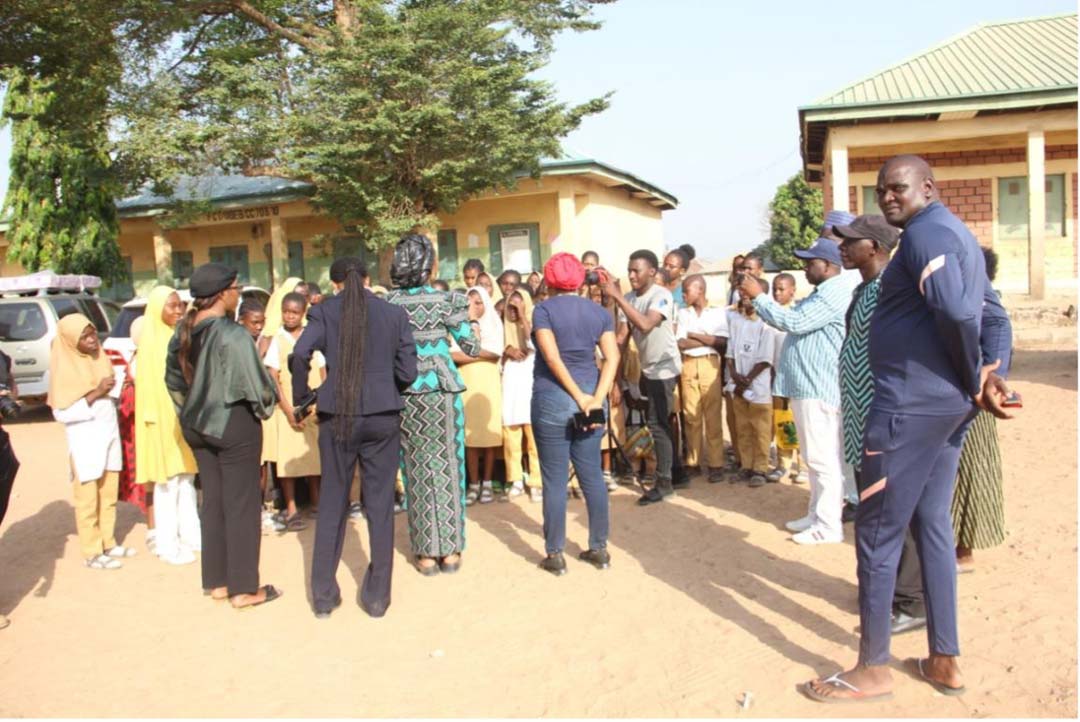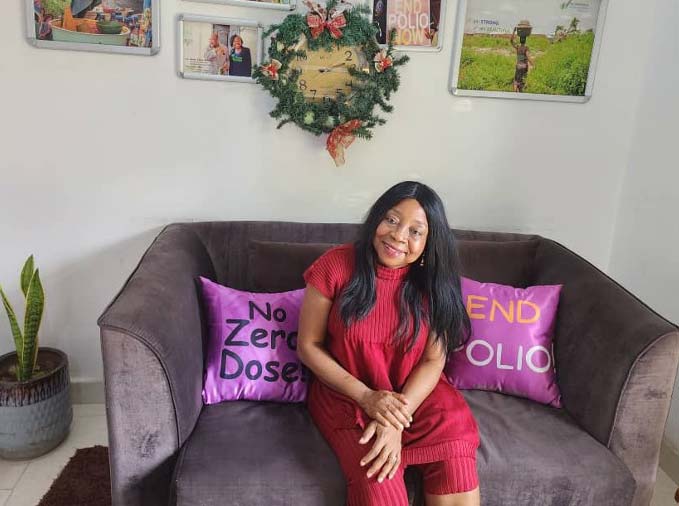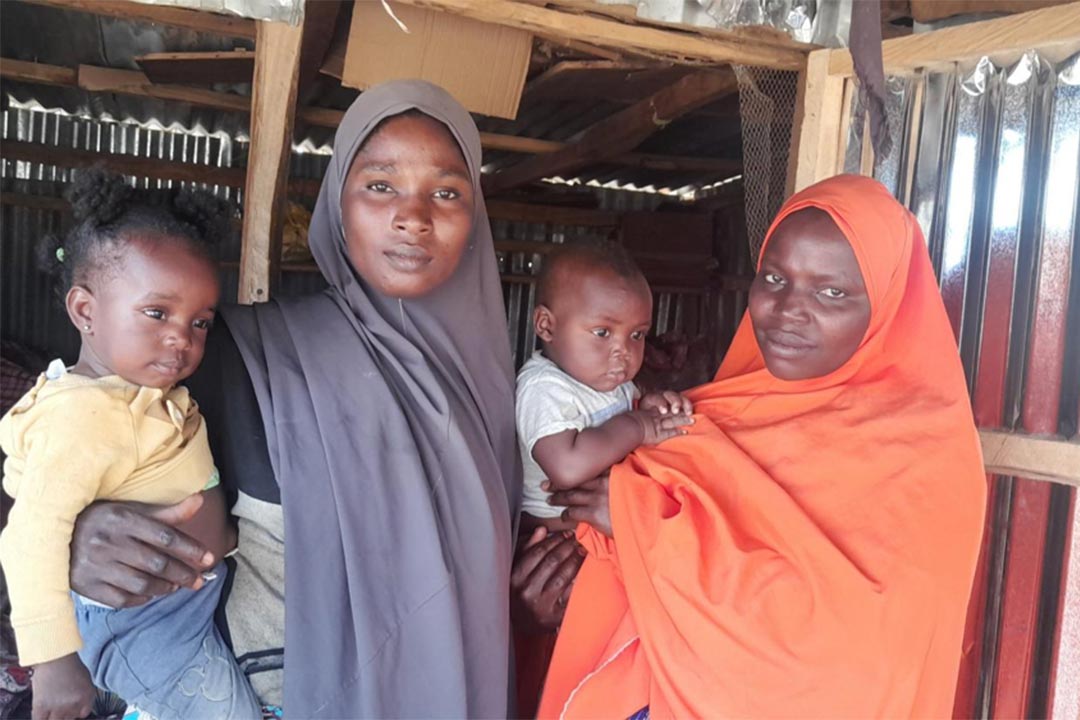"A miracle": bereaved by cervical cancer, Nigerian vaccine advocate champions HPV jab
Chika Offor resolved that nobody should suffer as her mother did, nearly three decades ago. Now the head of an Abuja health NGO, she tells VaccinesWork what she and her team are doing to make good on that commitment.
- 10 January 2024
- 4 min read
- by Bukola Afeni

"The HPV [human papillomavirus] vaccine for me is like a miracle, because my mother died from cervical cancer," Chika Offor tells VaccinesWork.
That was 28 years ago, long before the vaccine capable of preventing the vast majority of cervical cancers was available. But the thought that a jab could spare other women the ordeal her mother suffered drives Offor, who today leads the Vaccine Network for Disease Control, an Abuja-based health non-profit.
“I made a life decision that what my mother went through, nobody else will go through it. My mum went through so much pain that cannot be imagined.”
– Chika Offor, Vaccine Network For Disease Control
"I made a life decision that what my mother went through, nobody else will go through it. My mum went through so much pain that cannot be imagined," Offor says. "[That's how] my journey to creating awareness about the HPV vaccine and other routine immunisations began."
Until recently, that meant encouraging Nigerian girls and women to access the vaccine privately, at an often prohibitive cost. But in October last year that changed, as Nigeria added the HPV vaccine to its routine immunisation schedule, making it available free of charge to some 7.7 million eligible girls in a phased introduction drive.

Credit Bukola Afeni
Still, if October's development opens a new chapter in Nigeria's cervical cancer story, it doesn't qualify as a new departure for Offor in her advocacy work. "I have been doing this for ten years," she says.
For her, that work began at home, in the Abuja area. "I had to join the National Primary Health Care Development Agency by partnering with them to spread the message of vaccines in communities in the Federal Capital Territory (FCT) before I ventured into other states."
She describes her work as "spreading love in communities" – also, more technically, as "the micro adoption of Primary Health Care" – to facilitate the acceptance of vaccines when health personnel come to deliver routine jabs.
Have you read?
"Our team has been able to collaborate with the government through mobilisation, and working with the Community Health and Promoter Services (CHIPS) agents and champions that spread messages in FCT. We have shown [communities] that we care about them, and they believed because we have built trust over the years."
Chika Nwankwo, Head of Programs at the Vaccine Network For Disease Control, says the organisation's collaboration with CHIPS agents – who are influencers and promoters at community level – has been vital during the massive, nationwide HPV vaccine introduction campaign.
"During the HPV vaccination programme, they mobilise the girls and give each person a tag, and refer them to a health facility. That will enable us to track the number of girls that have been mobilised and vaccinated."
But she, too, emphasises that the key to the team's success is the trust that has been built over time. "We are actually known for promoting vaccine immunisation. Whenever our adopted communities need support in the area of girls and women empowerment, we are always there for them. Due to past interventions and the relationship we have built, they believe that any vaccine that is coming from our organisation is genuine."
Chinyere Umeh, who is the Deputy Director Health Education, Advocacy Communication and Social Mobilization (ACSM), FCT Primary Health Care Board, says the Vaccine Network For Disease Control team has been instrumental in disseminating information to people in the grassroots communities in the Federal Capital Territory.
"We have shown [communities] that we care about them, and they believed because we have built trust over the years.”
– Chika Offor, Vaccine Network For Disease Control
"They worked with the FCT Primary Health Care Team from planning to implementation stage of the HPV vaccine. At each stage of the project, they have been creating awareness at the community level, and even went as far as adopting some communities in the Federal Capital Territory."
Umeh says the non-profit also trained some community mobilisers to support the dissemination of the HPV vaccine. "The mobilisers have been able to obtain tremendous results in the community where they operate, by introducing them to the amazing benefit of vaccines, and they have been able to get the trust of the people over time."
Jemima Adamu is a resident of one of the "adopted" FCT communities, a place called Ruga. "The Vaccine Network team has done so much for the children and women in our community," she says. "They have been sensitising us for the past five years about the importance of routine immunisation."






